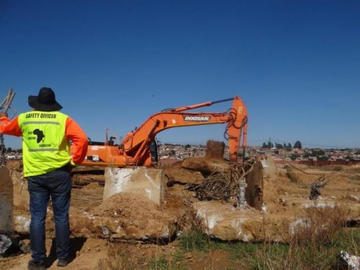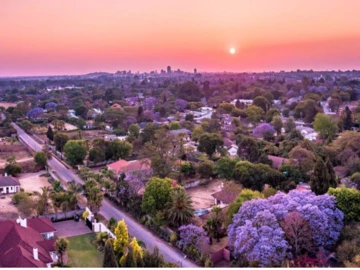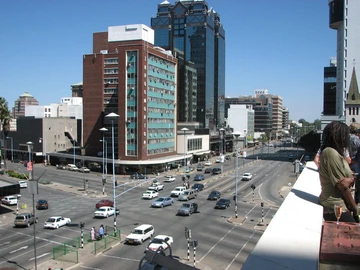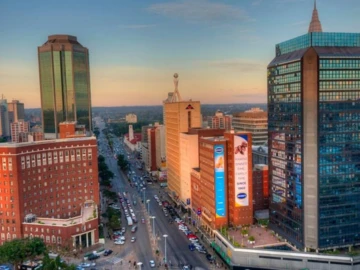Demolitions in Zimbabwe have been a nightmare for a period of time. Many realized that they had just thrown fortune into a black hole of indefinable loss.
I remember there was a week you couldn’t get up in the morning without running across some new headline about the capital city’s land crisis, often involving the talk of demolition of illegal structures.
What the BY-LAW alluded to be an illegal structure was a resemblance of someone’s blood and sweat; savings of a lifetime and pain, transmuted into a housing structure whose demise would soon shore at the descent of a council bulldozer. What we have seen and heard so far are powerful lessons of the mistakes that others made.
Avoid the path of a bulldozer!
A roof over your head is a vital need; as essential as food, clothing, water and energy .For many people here in Zimbabwe, a home is the biggest and probably the only investment one has. That being taken away from them, is as ripping them apart; a livelihood is probably destroyed for good. The Budiriro demolitions of December 8th 2020, where between 2017-2018, cooperatives duped unsuspecting home seekers by sub diving land that was set aside for a school, were not the first attempt to deal with unplanned settlements, and surely they will not be the last. The council currently has over twenty other court orders in their drawers awaiting execution. Of course the million-dollar question will be whether the councils will flash a sympathy card for the bereaved families, or go ahead and unleash the yellow CATS, JBLs and TLBs?
There was a day in history when front end loaders descended on homes, reducing them to heaps of rubble and sand. "Operation murambatsvina" left nearly 1.8 million people affected directly or indirectly. May 19th, the year of 2005, the ministry of local government and urban housing had a joint operation with the home affairs ministry to embark on ‘‘Operation Murambatsvina”.
This should be the referral point to everyone who intends to embark on a building project to exercise due diligence before pouring money on any land. And that should be the reason why one should continue reading this article till we arrive at the tips on staying clear off the monster machine path.
The mass evictions and forced demolitions are meant to restore sanity within neighborhoods, without which the effects can backfire on the residents. Disease outbreaks such as cholera and dysentery can easily thrive in disorderly settlements; or worse nowadays-this devouring covid-19 pandemic.
The sight of displacement of families is a gross one, and it is unending torture even to the executing authorities forever. The act is never pleasant. The government in a bid to resettle the affected murambatsvina households, announced the rebuilding and reconstruction program under "Operation Garikai" whose success can be debatable, but the fact is-every noble government strives to have its people settled well.
Efforts should be applauded. Leadership sometimes is about making those difficult decisions to safeguard livelihoods. Should home seekers be left to sprout everywhere or the law should descend on them to resettle them properly? -it’s a story for another day.
In this publication, the intention is for the reader to evade this horror. The regional, town and country planning act vests powers unto city authorities to;” Remove, Demolish or alter existing buildings or Discontinue or Modify uses or operations or require abatement of injury.”
In itself, the act provides for: and I quote, ‘the planning of regions, districts and local areas with the object of conserving and improving the physical environment and in particular promoting health, safety, order, amenity, convenience and general welfare, as well as efficiency and economy in the process of development and the improvement of communications; to authorize the making of regional plans, master plans and local plans, whether urban or rural; to provide for the protection of urban and rural amenities and the preservation of buildings and trees and generally to regulate the appearance of the townscape and landscape; to provide for the acquisition of land; to provide or the control overdevelopment, including use, of land and buildings; to regulate the subdivision and consolidation of pieces of land and to provide for the matters incidental to or connected to the foregoing.’
In Zimbabwe, Urban planning and development has metamo phosed from the western ideology on settlement, taking into consideration the racial segregation between the black and whites since they were incoming settlers.
There are austere efforts to bring to book the perpetrators. One example is that of twelve residential stands and a police institutional stand that were created in 2017 February by the Harare city council officers. It is alleged that subdivision C at corner Quendon and Lyndhurst road, Monavel, Harare were created unscrupulously by high ranking city officials on a land that was set aside for freeway reservation. The actual procedure was for the planner to seek approval of the layout plans with the city’s environmental management committee for recommendations, and he was supposed to submit the same to the ‘full council’ for approval and then seek attention with the ministry of local governance to apply for change of use for the reserved space. If these processes are evaded, then these stands will not appear in the survey registers-which is a time bomb. When underhand deals are happening in the director’s office, where the civilian ought to invest trust, then be very wary and shrewd before you acquire land. The dubiousness has gone beyond individuals and cooperatives but it has penetrated some of the official systems, which then gives you reasons to be very vigilant before parting with your dollar. When it comes to buying a property or a residential stand, it is wise to engage an experienced real estate attorney as early as possible. Apart from their legal expertise that allows them to interpret the dictates of the by-laws of the land, Lawyers can sniff with ease where danger is looming, and can easily unravel dishonesty harbored in rhetoric jargon even within contracts. Never try to save money by evading legal advice, diving into land deals head-first. Never skimp legal advice in order to save money, it’s a bad idea. If that land is worth buying, then it is worth legal due diligence
Many people even after having a lawyer, just because they have money in the bag they become shy to ask about things they do not understand. It’s okay not to understand sometimes-therefore ask! They fear looking stupid, and yet the reason why they hired a lawyer is admitting ignorance in that area. Ask without hesitation, whatever you do not understand in the papers. Let it be explained to you; minimize the ambiguity of the transaction by understanding the dictates spelt in the document - don’t worry about looking stupid.
You are not getting the advice for free, at least be proud of that.
 Continue with Facebook
Continue with Facebook
 Continue with Email
Continue with Email















